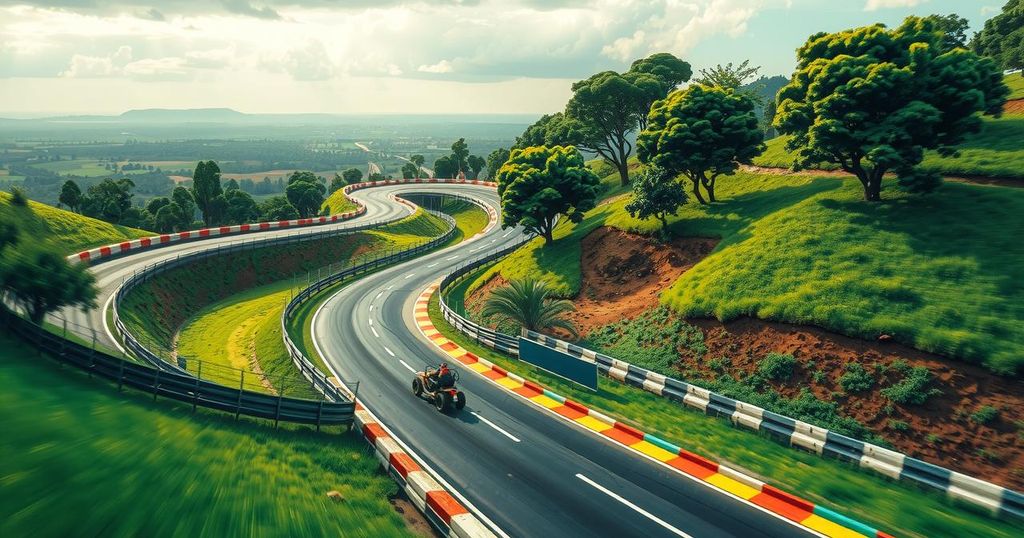Rwanda vs South Africa: The Race to Host F1 in Africa
Rwanda and South Africa are competing to host the Formula 1 Grand Prix by 2027, amidst excitement from notable F1 drivers. Rwanda’s innovative bid integrates sustainability, while South Africa relies on its established Kyalami Circuit. Both nations face financial and logistical challenges in securing this event, which could significantly impact their economies and global image.
The competition between Rwanda and South Africa to host Formula 1 in Africa has intensified, as the continent has not seen an F1 event in over 30 years. Both nations aspire to realize an African Grand Prix by 2027, with distinguished F1 drivers supporting the initiatives. Drivers such as Lewis Hamilton and Max Verstappen have expressed excitement about the prospect of racing in Africa, emphasizing its importance in expanding F1’s global reach.
Rwanda’s bid is characterized by a unique commitment to sustainability and environmental consciousness. The proposed circuit, designed by former F1 driver Alexander Wurz, will be located near Kigali and aims to integrate the country’s natural beauty, featuring thrilling elevation changes and sharp corners that promise an exciting race experience. The government has positioned this endeavor as part of a broader strategy to enhance Rwanda’s image as a global sports destination.
Investments in Rwanda’s F1 project may exceed $270 million, with potential benefits for the tourism sector, which generated significant revenue in recent years. The Rwandan government contends that hosting an F1 event would provide extensive job opportunities and enhance local infrastructure, contributing positively to the nation’s economy and elevating its reputation on the world stage.
Conversely, South Africa’s approach relies on the existing Kyalami Circuit, which successfully hosted numerous F1 races until 1993. Maintainable renovation costs are likely lower, and government officials stress the economic impact, projecting that the event could significantly bolster tourism and local employment. Sports Minister Gayton McKenzie is optimistic about private investments in the venture, paralleling F1’s potential benefits to those seen during the 2010 FIFA World Cup.
Both nations face formidable challenges, including substantial financial commitments to Liberty Media for race promotions and other logistical expenditures. Furthermore, the successful candidate must ensure robust infrastructure to accommodate international visitors. As the efforts of Rwanda and South Africa continue, the return of Formula 1 to Africa looms closer, promising to usher in a remarkable event that merges historical significance with modern innovation.
The discussion surrounding Formula 1’s potential return to Africa centers on the competing bids from Rwanda and South Africa. It has been more than three decades since the continent last hosted an F1 Grand Prix, and both countries are eager to bring this prestigious motorsport event back. Significant figures within the F1 community, including drivers and officials, have expressed their support for an African race, highlighting its importance for the global expansion of the sport.
In conclusion, both Rwanda and South Africa are firmly in the race to host Africa’s Formula 1 Grand Prix, each presenting compelling arguments for their respective bids. Rwanda emphasizes sustainability and scenic beauty, while South Africa relies on its historical Kyalami Circuit. The outcome of this competition will depend on overcoming substantial logistical and financial hurdles, but the prospect of F1’s return to Africa represents an exciting development for motorsport enthusiasts and the continent as a whole.
Original Source: www.bbc.com




Post Comment